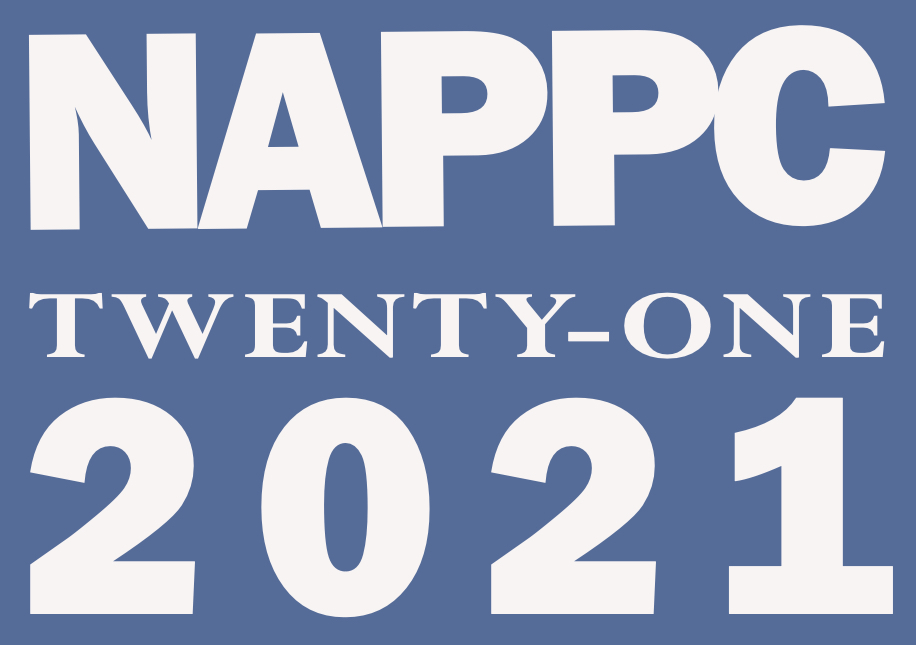NAPPC Conference Recap 2021
This year's 21st Annual North American Pollinator Protection Campaign (NAPPC) Conference, hosted virtually by the Smithsonian National Museum of Natural History, was a huge success with many first-time participants from a diverse collection of fields. Despite the various barriers that continued to be brought on by the COVID-19 pandemic, the Pollinator Partnership and NAPPC Team ensured that critical components of the NAPPC Conference maintained their integrity. This year’s Conference brought partners of all backgrounds together, working to find common ground on innovative initiatives that benefit pollinators.
This event included wonderful, world class presentations from leaders at the forefront of pollinator issues. Topics ranged from indigenous land practices and food system resilience to bee health and pollinator science communication.
Our Hosts
Kelly Rourke, Executive Director, Pollinator Partnership
Laurie Davies Adams, Director of Programs and Operations, Pollinator Partnership
Dr. Rebecca Johnson, Associate Director for Science, Chief Scientist, and Acting Deputy Director, Smithsonian National Museum of Natural History
Keynote Speakers Part One
Dr. Abram Bicksler, Food and Agricultural Organization of the United Nations:
The intersection of sustainable food systems and pollinator health.
Valerie Segrest, Co-founder of Tahoma Peak Solutions and Member of the Muckleshoot Tribe:
Honoring indigenous land practices to improve food systems and pollinator health.
Mikol Hoffman, Food Producer Network at World Central Kitchen:
Creating resilient food systems by supporting communities and pollinators.
Dr. Eric Lonsdorf, University of Minnesota and Dr. Taylor Ricketts, University of Vermont:
Rewarding farmers for the collective benefits of installing pollinator habitat.
Keynote Speakers Part Two
Dr. Christina Grozinger, Penn State University:
Predicting and managing bee health in a changing world.
Dr. Olivia Messinger-Carril, Author of the Bees in Your Backyard:
Documenting native bee populations: past efforts, future endeavors, and a place for citizen science.
Dr. Kirsten Traynor, 2 Million Blossoms: Protecting Our Pollinators Magazine:
2 Millions Blossoms: Communicating pollinator science to a wide audience.
2021 Task Forces
NAPPC convened 10 Task Forces who aim to establish year-long objectives surrounding a certain pollinator issue. Some NAPPC Task Forces are focused on the conservation of specific pollinators, engaging broad stakeholders to promote Lepidoptera and exploring the role of NAPPC in making positive contributions to bumble bees. Another is developing and disseminating pesticide applicator training and addressing other pressing pesticide issues.
The Bee Friendly Farming Task Force is building on an existing project that establishes pollinator-friendly criteria for farmers. The Honey Bee Health Task Force creates an RFP with relevant priority areas for scientific grants and has developed an online diagnostic tool for beekeepers. The Climate Change Task Force focuses on the impacts and mitigation of climate change in relation to pollinator health.
The Pollinator Habitat Installations Task Force and the Pollinator on Managed Lands Task Force continues to dedicate its' efforts including land preparations, maintenance, and engaging entities with the ability to enhance pollinator habitat in large-scale efforts. The North American Collaboration Task Force is aiming to expand and enhance the North American collaborative by engaging more participation from Canada, Mexico, first nation and indigenous territories, Central America, and the Caribbean.
The newest Task Force, Pollinator Communications, works to create and share relevant, thoughtful, engaging and hopeful communications campaigns around the plight of pollinators and their importance to our ecosystems.
Honey Bee Health Research Updates
Current Honeybee Health grantees gave updates on their research on the following topics:
Laura Avila, PhD., Nicole Gerardo, PhD., and Berry Brosi, PhD. at Emory University and the University of Washington:
Bee gut microbiome changes and pathogen prevalence after exposure to agricultural antibiotics.
Lewis J Bartlett, PhD. at the University of Georgia:
Trialing a novel insecticide to control small hive beetle infestation and encourage supplementary pollen feeding as part of honey bee health.
Edward Hsieh at the University of Illinois at Urbana-Champaign:
Can improved diet quality ameliorate the interactive effects of sublethal pesticide exposure and viral infection in honey bees?
*presented on behalf of Principal Investigator, Dr. Adam Dolezal of the Dolezal Bee Research Lab, University of Illinois at Urbana-Champaign
Brock Harpur, PhD., Keith Pardee, PhD., and Margot Karlikow, PhD. at Purdue University and the University of Toronto:
Developing inexpensive CRISPR-Cas12a assays to detect honey bee virii in the field.
Evan Palmer-Young, PhD. at the USDA Agricultural Research Service Bee Research Laboratory:
Does temperature enhance microbiome-mediated resistance to infection in honey bees?
Ilse Ruiz-Mercado at the Universidad Nacional Autónoma de México:
Climate change mitigation: rainwater harvesting ecotechnologies to reduce drought stress in honey bee colonies in southern Mexico.
2021 NAPPC Award Ceremony
Lastly, NAPPC presented ten awards to pollinator advocates, farmers, agencies, and lifetime achievers who have worked for years to promote pollinators. These awardees understand just how important pollinators are to food, culture, and life. They have taken that extra step to help out the birds, bees, butterflies, moths, and bats that support agriculture and ecosystems everywhere. NAPPC, through its recognition and appreciation of these individuals, encourages their activities and hopes to catalyze future actions on behalf of pollinators.
To view our 2021 Award Winners, click here.
Each participant received and gift package curated by the NAPPC Team, aiming to replicate the luxury of sharing a piece of cake together. While certainly not the same, this package provided NAPPC Members with a sense of togetherness and appreciation. The 2022 NAPPC is scheduled to return to the Smithsonian National Museum of Natural History for an in-person, or possible hybrid meeting that incorporates both virtual and face to face, meeting to continue NAPPC’s prominent influence on the future of pollinators.

